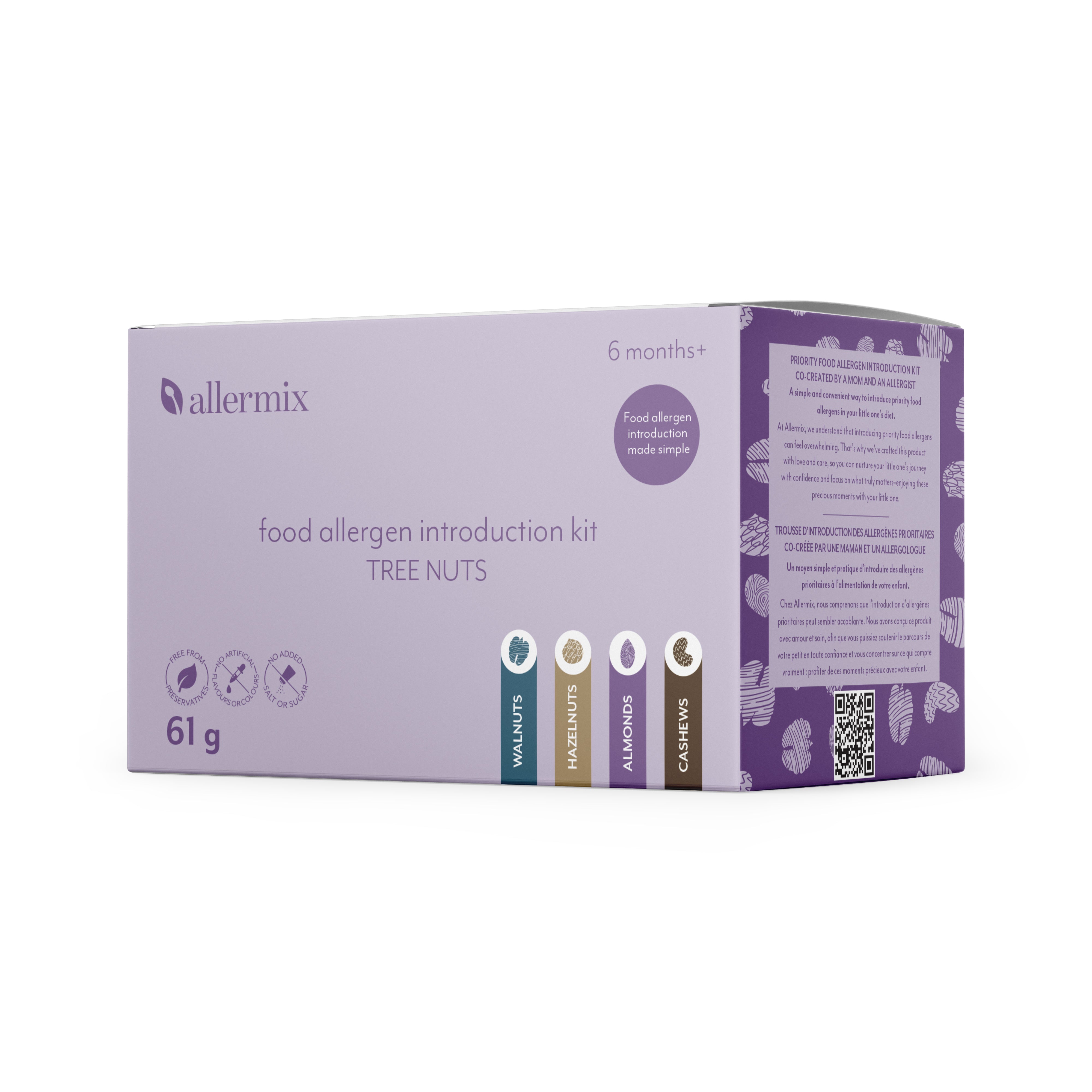
Walnut Allergy: What Parents Need to Know

Walnut Nut Allergy: What Parents Need to Know
Reviewed by Dr. R. Zhu, MD, FRCPC, Allergist & Clinical Immunologist
Walnuts are popular for their rich, earthy flavor and nutritional benefits, but they’re also one of the most common tree nut allergies and are classified as a priority allergen by Food Allergy Canada.
Disclaimer:
This article is for general informational purposes only and is not a substitute for professional medical advice. Always consult your healthcare provider or allergist if you suspect an allergy or have concerns about introducing nuts to your child.
Table of Contents
- What Is a Walnut?
- Is Walnut a Tree Nut?
- How Common Is a Walnut Nut Allergy?
- Are You Allergic to Other Tree Nuts if You're Allergic to Walnut?
- Does a Walnut Allergy Mean I'm Allergic to Peanut?
- Can You Outgrow a Walnut Allergy?
- How to Introduce Walnuts Safely
- Final Thoughts
1. What Is a Walnut?
Walnuts are edible seeds from the walnut tree (Juglans regia). While technically seeds, they are classified and consumed as nuts because of their culinary uses and rich nutritional profile. Walnuts are high in:
- Healthy fats, particularly omega-3 fatty acids
- Protein
- Vitamin E and B vitamins
- Minerals such as magnesium and copper
2. Is Walnut a Tree Nut?
Yes. Walnuts are part of the tree nut family, which also includes cashews, pistachios, almonds, pecans, hazelnuts, Brazil nuts, macadamia nuts, and pine nuts.
Learn more about different tree nut allergies ➝
3. How Common Is a Walnut Nut Allergy?
Tree nuts (including walnut) are a priority food allergen in Canada, responsible for over 90% of reported allergic reactions to foods. Among tree nuts, walnut allergy is one of the more common, especially in North America.
4. Are You Allergic to Other Tree Nuts if You're Allergic to Walnut?
Not necessarily. However, there can be cross-reactivity with pecans, as they are closely related botanically (both from the Juglandaceae family). Individuals with a walnut allergy may be at increased risk of developing other tree nut allergies as well. Consult your primary care provider or allergist if you are unsure or have questions.
5. Does a Walnut Allergy Mean I'm Allergic to Peanut?
No. Peanuts are legumes, not tree nuts, and there is little cross-reactivity between them. Many people with a walnut allergy can safely consume peanuts, but always consult with an allergist if you are unsure.
6. Can You Outgrow a Walnut Allergy?
Unlike milk or egg allergies, most tree nut allergies (including walnut) tend to persist throughout life. Studies suggest only about 10–15% of children eventually outgrow a tree nut allergy.
7. How to Introduce Walnuts To Your Baby
Early introduction of allergenic foods, including tree nuts, may help support tolerance for your little one. For babies, walnuts should never be offered whole due to choking risk. Instead, you can use:
- Finely ground walnuts mixed into smooth purees
- Walnut powders (supports both walnut and pecan due to their similarity) designed for infant introduction
Always discuss with your healthcare provider before introducing walnuts if your child has severe eczema, egg allergy, or a known food allergy.
Explore our tree nut early introduction kit to help introduce tree nuts stress free
8. Final Thoughts
Walnut nut allergy is a significant concern for many families and is a priority allergen in Canada. While walnuts share some similarities with other tree nuts, they are not related to peanuts, and many people can tolerate other tree nuts.
Early, informed introduction can play an important role in supporting tolerance, but safety must always come first. For personalized guidance, consult your health care provider or allergist.
References & Further Reading
Food Allergy Canada – Tree Nuts
Food Allergy Canada - Eat Early, Eat Often


































